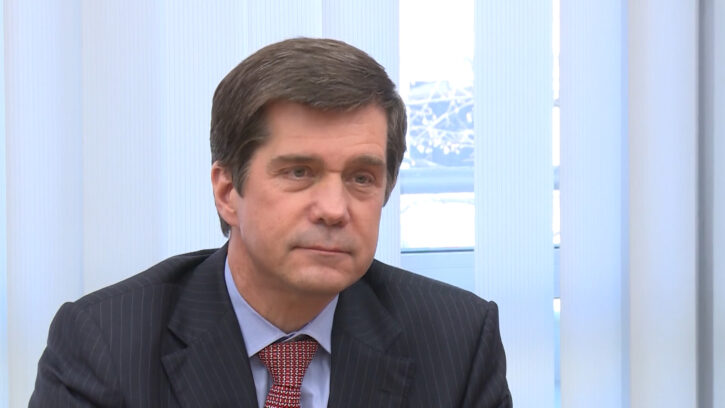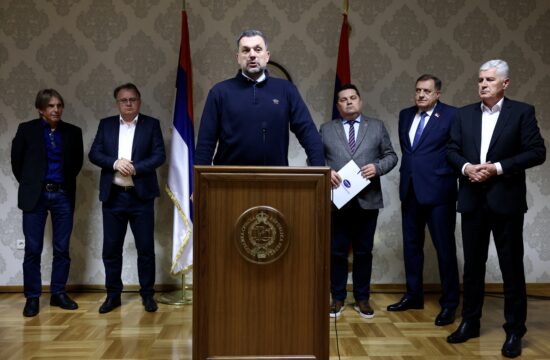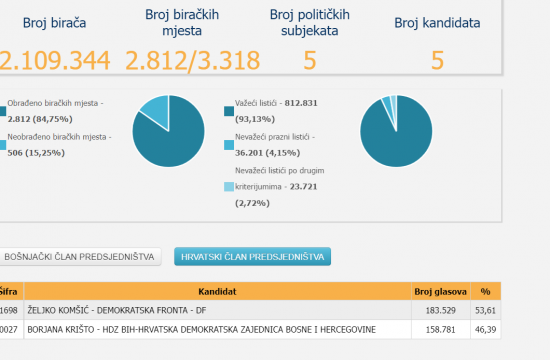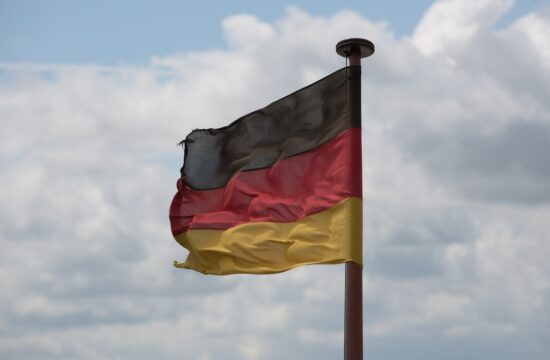
Recent headlines involving Bosnia's top judicial institution, the High Judicial and Prosecutorial Council (HJPC) are a manifestation of the larger rule of law problem in Bosnia – the rules don’t apply equally to everyone, US Ambassador to Bosnia Eric Nelson wrote Friday in his latest blog post.
“The international community helped create the HJPC with the goal of bringing independence and integrity to the judiciary. It is clear that the HJPC is not achieving those goals. We state that not with prejudice, but based on facts,” Ambassador Nelson wrote. “The OSCE’s annual report on monitoring of corruption trials in BiH confirmed through numbers what citizens already know: the institutions which have the duty to prosecute corruption are failing to do so.”
The HJPC is a state institution charged with appointing and disciplining Bosnian judges and prosecutors.
Nelson recalled that this year, the EU Commission’s opinion on Bosnia's application for EU membership identified several key rule of law priorities, such as the need to step up the fight against corruption and adopting new legislation on the HJPC.
Next year, the Commission will present a report as part of the 2020 Enlargement package which will assess Bosnia's implementation of these key priorities. Progress on the rule of law will determine whether the country can be considered a credible candidate for EU membership, he wrote.
Nelson emphasised that the United States has invested millions of dollars in assistance since the end of the war to help Bosnia build a stronger justice sector and that the citizens in know the returns on that investment are not adequate.
“Citizens of Bosnia and Herzegovina bear the weight of corruption on their own backs every day: they struggle when access to good health care, education, and jobs requires connections to the political patronage system. Seeing their personal progress obstructed, many emigrate, choosing countries that have a strong rule of law to secure their future,” US envoy wrote.
Carved on the front of the United States Supreme Court building in Washington, D.C. are the words ‘Equal Justice Under Law.’ That is our ideal, driving the highest aspirations of our judicial system –that no one should get better treatment in the courts than anyone else. Bosnian citizens deserve equal justice under law.
“That shows how badly citizens of Bosnia want to be equal in front of the law. They want strong rule of law that evens the playing field so their hard work and their merit determine their success,” he added.
He argued that success will require much more than continued efforts of the US or the international community. It will require members of civil society and members of the legal profession to speak up and call for change.
“It is especially important for members of the media to continue to do their part in covering this important issue,” he stressed.
“Little will change if citizens of Bosnia do not demand rule of law reforms,” Nelson noted and added that the Bosnian Parliament has rightly pointed out many problems created by the HJPC, giving voice to what many citizens already know.
The US Ambassador also noted that the Parliament has a strong oversight role for a reason – not to encroach on the independence of judicial institutions, but to ensure they are accountable to the public.
The Ministry of Justice needs to act now to draft amendments to the HJPC law to help strengthen the accountability of BiH’s judiciary, he said.
in the end, he encouraged everyone in the country to start the change that they want to see to improve rule of law in Bosnia, adding that the United States will support citizens working to build a brighter future for Bosnia and Herzegovina.





